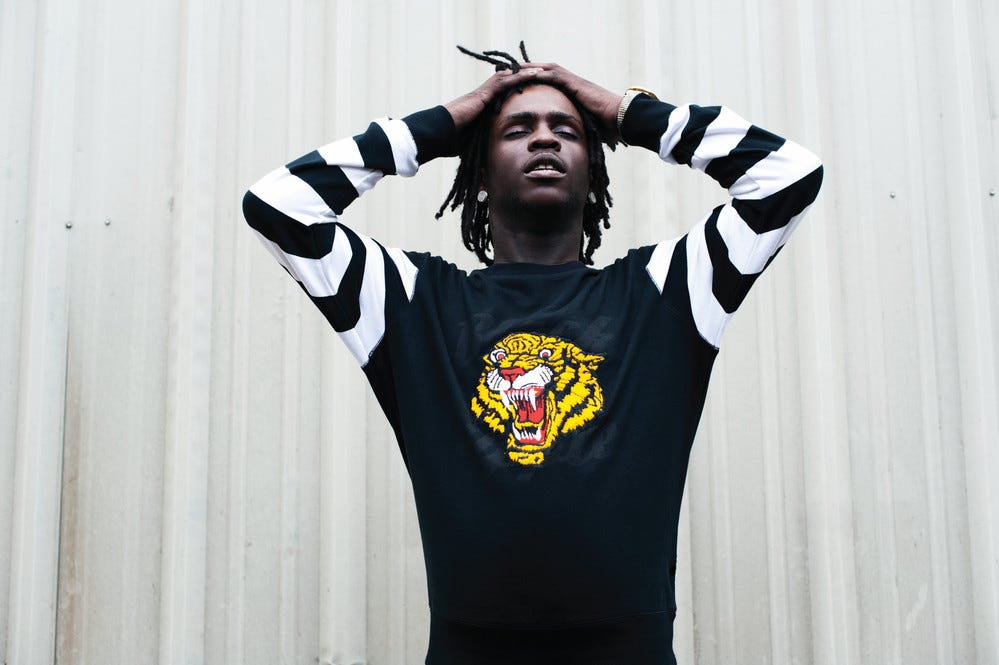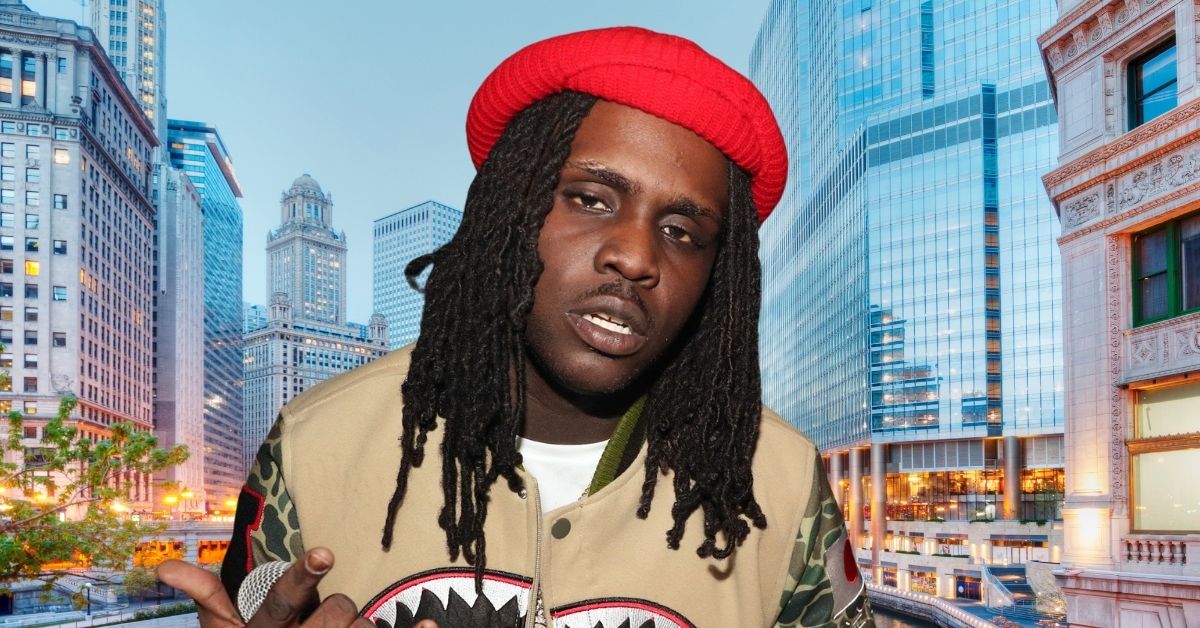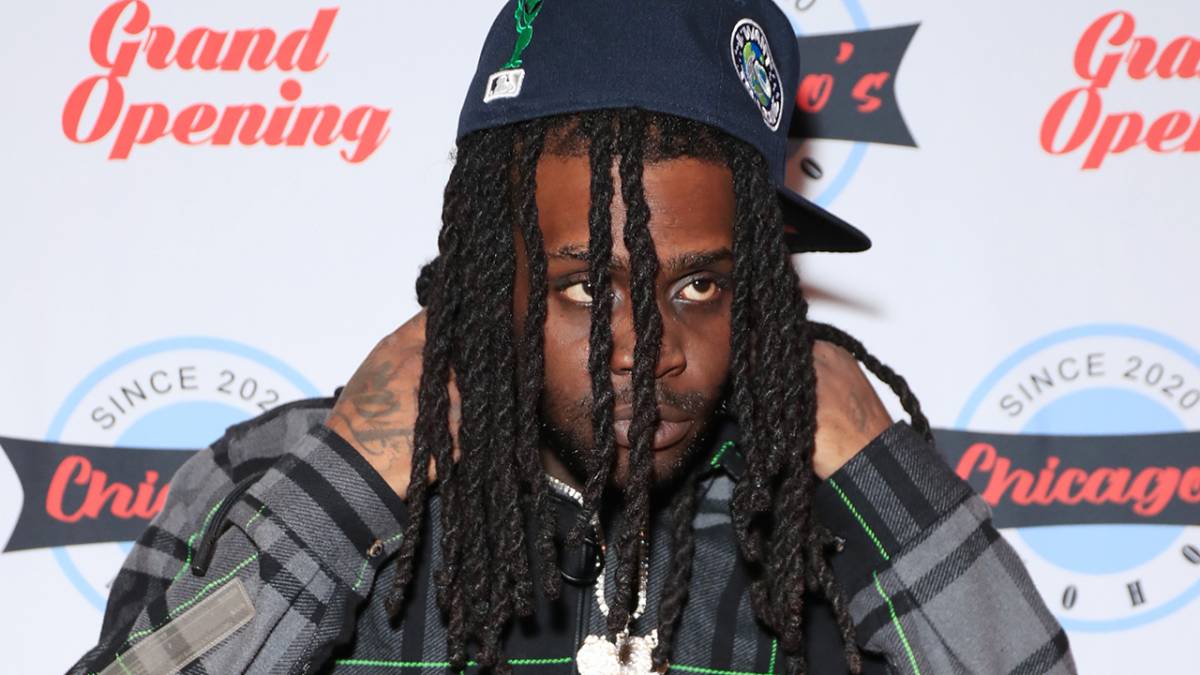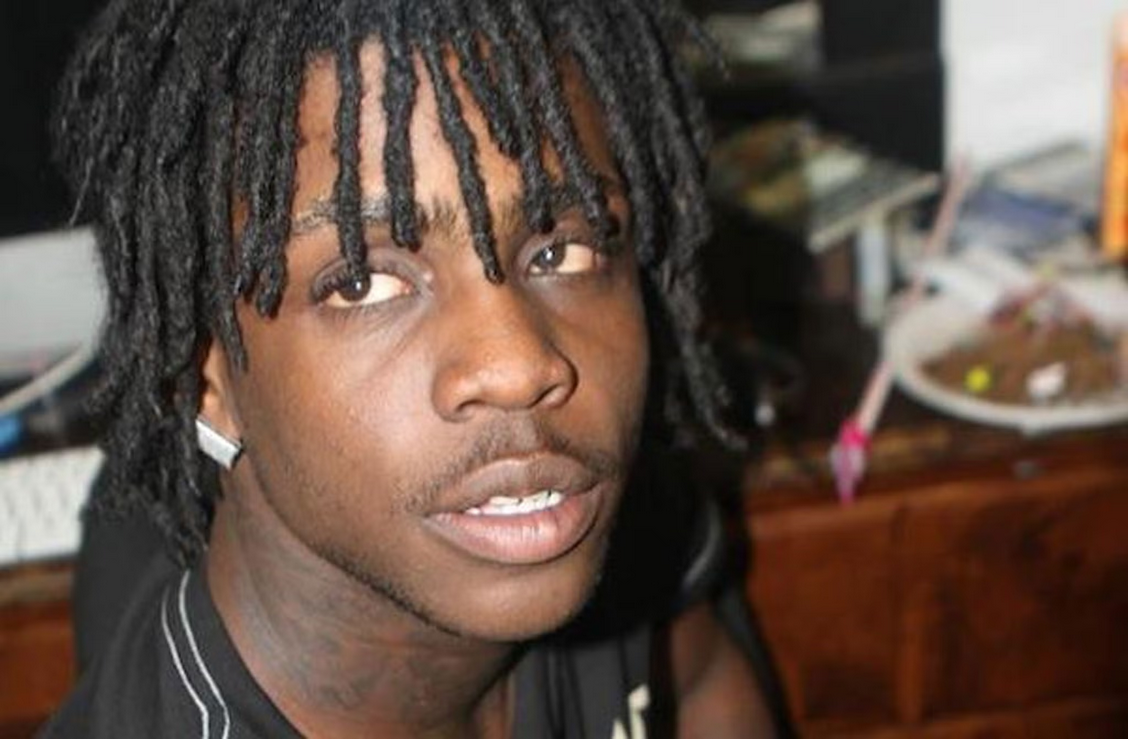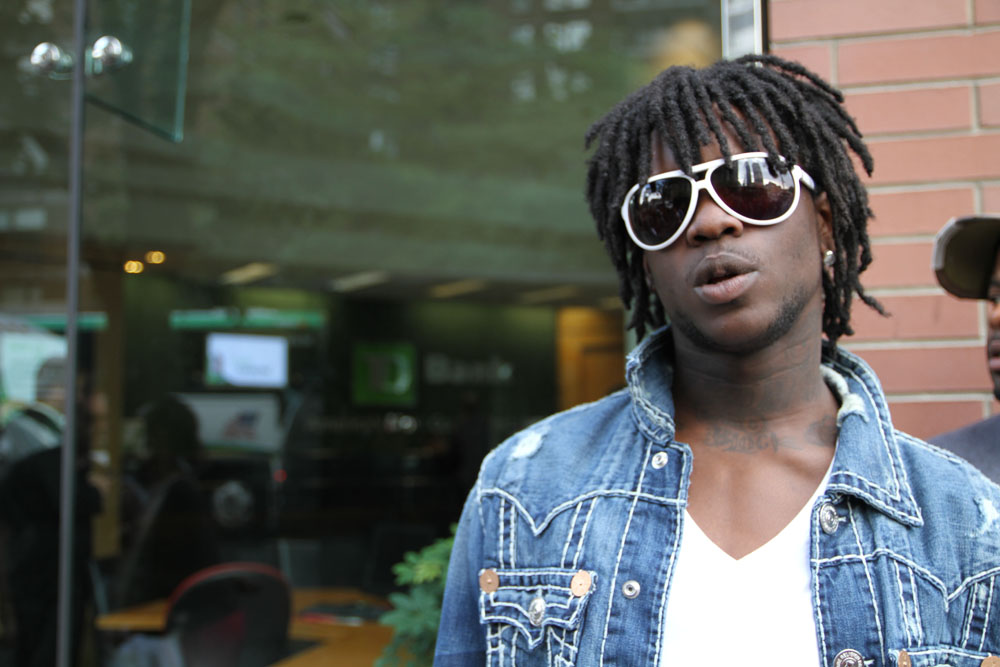SUMMARY:
- Chief Keef, born Keith Farrelle Cozart on August 15, 1995, in Chicago, Illinois, is currently 28 years old, showcasing a successful career in the music industry that began in his early teens.
- Rising to fame with a distinctive style that contributed significantly to the Chicago drill movement, Keef signed a multi-million dollar record deal at just 16 years old, highlighting his early and impactful entrance into the rap scene.
- Beyond his music, Keef’s life has been marked by personal and legal challenges, yet he remains a pivotal figure in hip-hop, known for his influence on the genre and his role as CEO of his own record label, reflecting both his artistic and entrepreneurial spirit.
Keith Farrelle Cozart, universally known as Chief Keef, has been a formidable presence in the rap industry since the release of his early tracks.
Born on August 15, 1995, in Chicago, Illinois, Chief Keef stands as a significant figure in the music scene at the age of 28. His journey from the streets of Chicago’s South Side to becoming one of rap’s most influential voices is a testament to his talent, resilience, and innovation. Chief Keef’s rise to fame was catalyzed by his hit song “I Don’t Like,” which became an anthem for the drill genre and caught the attention of music icons and fans alike.
This success led to the release of his debut album, “Finally Rich,” in 2012, marking his official entry into the music world.
Over the years, Chief Keef has not only remained relevant but has also evolved, continuously impacting the genre with his unique sound and entrepreneurial ventures, such as founding his own record label, Glo Gang. His story is one of triumph over adversity, making him a role model for aspiring artists everywhere.
The Man Behind the Music: Chief Keef’s Beginning
Chief Keef, born Keith Farrelle Cozart on August 15, 1995, in Chicago, Illinois, emerged from a background that was as complex as it was challenging. His beginnings are deeply rooted in the South Side of Chicago, a place notorious for its hardships but also its vibrant culture and music scene.
Growing up in this environment, Keef was exposed to the realities of street life from an early age, experiences that would later become central themes in his music.
From the outset, Chief Keef demonstrated a natural affinity for music, using it as an outlet to express his personal experiences and the broader realities of his community. Despite facing numerous obstacles, including legal issues and the dangers inherent to his surroundings, he began producing music as a teenager, utilizing social media platforms to share his work.
This digital approach to distribution allowed him to build a substantial following without the backing of a major record label.
His breakthrough came in 2012 with the release of “I Don’t Like,” a track that resonated with listeners for its raw portrayal of life on the streets of Chicago. The song’s success catapulted him into the national spotlight, making him a pivotal figure in the drill music genre—a style known for its gritty lyrics and dark, trap-influenced beats.
Chief Keef’s Rise to Fame and Recognition
Chief Keef’s journey from the streets of Chicago to becoming a central figure in the drill music scene is a testament to his undeniable talent and influence. His rise to fame began with a mix of raw lyrical content, distinctive beats, and a keen understanding of the power of social media.
This combination not only resonated with audiences but also redefined the landscape of hip-hop music.
- The Breakthrough: Keef’s breakout hit “I Don’t Like” was released in early 2012 and quickly became a street anthem. Its gritty portrayal of life in Chicago, combined with a catchy beat, caught the attention of music fans nationwide. The track’s remix, featuring Kanye West among others, propelled Chief Keef into the mainstream, amplifying his voice and the drill music genre to a global audience.
- Debut Album Success: The release of his debut album, Finally Rich, in December 2012, marked a significant milestone in Chief Keef’s career. The album featured hits such as “Love Sosa” and “Hate Bein’ Sober,” which solidified his place in the music industry. Finally Rich received widespread acclaim for its production quality and Keef’s authentic storytelling, showcasing his experiences and the realities of his upbringing.
- Influence on Hip-Hop: Chief Keef’s impact extends beyond his discography. He is credited with popularizing the drill music genre, characterized by its dark, gritty lyrical content and trap-influenced beats. His style and sound have influenced a new generation of artists, both within Chicago and internationally, shaping the direction of contemporary hip-hop.
- Recognition and Legacy: Despite facing challenges, including legal issues and controversies, Chief Keef’s contributions to music have been recognized by fans and peers alike. His ability to capture the complexities of his environment in his music has earned him respect and admiration. As a pioneer of drill music, his legacy is marked by his role in bringing the genre to the forefront of the hip-hop scene, influencing its sound and culture.
Chief Keef’s rise to fame and recognition in the music industry is a story of resilience, innovation, and the transformative power of art.
From his humble beginnings to becoming a key figure in hip-hop, his journey reflects the enduring impact of his music and the indelible mark he has left on the genre.
The Unique Sound: Chief Keef’s Music Genre
Chief Keef is widely recognized as a pioneer of the drill music genre, a subgenre of hip-hop that originated from the South Side of Chicago in the early 2010s. Drill music is characterized by its dark, grim lyrical content and aggressive trap-influenced beats, reflecting the harsh realities of urban life and street culture.
Chief Keef’s signature sound combines raw, authentic storytelling with hard-hitting production, capturing the essence of his experiences and the environment he grew up in. His influential tracks, such as “I Don’t Like” and “Love Sosa,” not only catapulted him to fame but also played a pivotal role in bringing drill music to the mainstream, shaping the direction of contemporary hip-hop.
Through his music, Chief Keef has left an indelible mark on the genre, inspiring a new generation of artists and solidifying his legacy as a key figure in the evolution of hip-hop.
Chief Keef’s Prolific Discography
Chief Keef’s discography is a testament to his significant influence on the drill music genre and hip-hop at large.
Since his emergence on the music scene, he has been prolific in his output, releasing a broad array of albums, mixtapes, and singles that have resonated with fans worldwide. Below are some of the highlights from his extensive discography, showcasing his evolution as an artist and his contributions to the music industry.
Studio Albums
- Finally Rich (2012): Marking Chief Keef’s major-label debut, this album features hits like “I Don’t Like” and “Love Sosa,” which have become anthems in the drill music scene.
- Almighty So 2 (2023): This album continues to showcase Chief Keef’s growth as an artist, blending his signature drill sound with new influences and themes.
- 4NEM (2021): With 4NEM, Chief Keef further solidifies his place in the industry, offering a mix of hard-hitting tracks and introspective lyrics.
Mixtapes and EPs
- The GloFiles (Pt. 4) (2020) and The GloFiles (Pt. 3) (2019): These mixtapes feature a collection of unreleased tracks, highlighting Chief Keef’s versatility and prolific nature.
- Back from the Dead (2012): One of Chief Keef’s most influential mixtapes, it played a crucial role in popularizing the drill music genre beyond Chicago.
Singles
- “I Don’t Like” (2012): This single catapulted Chief Keef into the spotlight, becoming a defining track of the drill music movement.
- “Love Sosa” (2012): Another major hit from Chief Keef, “Love Sosa” showcases his unique style and lyrical prowess.
Chief Keef has also been known for his collaborations with other artists, contributing to tracks that highlight his adaptability and influence across various styles within hip-hop.
His work with artists like Kanye West on the “I Don’t Like (Remix)” not only bridged the gap between drill and mainstream hip-hop but also introduced his sound to a wider audience.
Navigating Notoriety: Chief Keef’s Legal Challenges
Chief Keef’s career, while marked by significant musical achievements and influence, has also been shadowed by a series of legal challenges.
These issues have not only impacted his personal life but have also intersected with his professional endeavors, affecting his ability to perform and release music at various points.
Early Encounters with the Law
Chief Keef’s legal troubles began in his teenage years, shortly after his rise to fame. At 16, he served house arrest for charges related to the unlawful use of a weapon, a sentence that was served at his grandmother’s home.
This period coincided with his early breakthroughs in the music industry, setting a precedent for the complex relationship between his burgeoning career and legal entanglements.
Probation Violations and Jail Time
His legal woes escalated with a series of probation violations, stemming primarily from his involvement in gun-related incidents and drug offenses.
One notable incident involved a video interview with Pitchfork Media, where Keef was seen at a gun range, an act that violated the terms of his probation. This led to a brief jail sentence, interrupting his career momentum and sparking debates about the impact of his actions and lifestyle on his young fanbase.
Child Support Disputes
Beyond criminal charges, Chief Keef has faced legal disputes over child support. These cases brought to light issues of financial responsibility and personal conduct, further complicating the public’s perception of him.
Despite these challenges, Keef has continued to maintain his career, navigating the complexities of fatherhood and fame.
Impact on Career and Public Perception
Chief Keef’s legal challenges have had a dual impact on his career and public image. On one hand, they have fueled criticisms regarding his influence on youth and culture, with detractors pointing to his legal issues as evidence of a problematic lifestyle.
On the other hand, his fans and some cultural commentators argue that his experiences and legal battles are reflective of broader systemic issues facing marginalized communities, lending authenticity to his music and message.
Moving Forward
Despite these challenges, Chief Keef has worked to move forward, both personally and professionally. His legal issues have undeniably shaped his narrative, but they have also underscored his resilience.
As he continues to navigate his legal challenges, Chief Keef’s story remains a poignant reminder of the complexities of fame, especially for artists whose work is deeply intertwined with their personal experiences and the realities of their upbringing.
In summary, Chief Keef’s legal challenges have been a significant aspect of his career, influencing his public perception and his music. Navigating these issues has been a complex journey, one that reflects the broader dynamics of fame, artistry, and personal growth.
Conclusion
Chief Keef’s journey from a young talent in Chicago to a celebrated figure in the rap industry illustrates his enduring influence and adaptability.
At 28 years old, he has navigated the complexities of fame and emerged as a pivotal figure in shaping the sound of modern hip-hop. His contributions extend beyond his music; through his record label, Glo Gang, Chief Keef has fostered new talent, thereby ensuring his legacy within the genre. Despite facing challenges, his unwavering commitment to his craft and his ability to resonate with audiences worldwide underscore the depth of his impact on music and culture.
As Chief Keef continues to evolve and innovate, his story remains a powerful reminder of the transformative power of art and perseverance!

